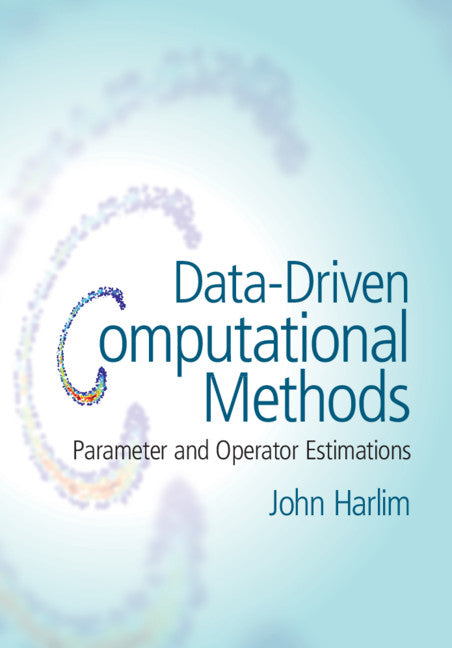Freshly Printed - allow 4 days lead
Couldn't load pickup availability
Data-Driven Computational Methods
Parameter and Operator Estimations
Describes computational methods for parametric and nonparametric modeling of stochastic dynamics. Aimed at graduate students, and suitable for self-study.
John Harlim (Author)
9781108472470, Cambridge University Press
Hardback, published 12 July 2018
168 pages, 35 b/w illus. 7 colour illus.
25.3 x 17.8 x 1.3 cm, 0.5 kg
'The MATLAB code used for the examples in the book can be downloaded from the publisher's website; the scripts are short, well commented and can be understood without difficulty (even if you are not a MATLAB expert).' Fabio Mainardi, MAA Reviews
Modern scientific computational methods are undergoing a transformative change; big data and statistical learning methods now have the potential to outperform the classical first-principles modeling paradigm. This book bridges this transition, connecting the theory of probability, stochastic processes, functional analysis, numerical analysis, and differential geometry. It describes two classes of computational methods to leverage data for modeling dynamical systems. The first is concerned with data fitting algorithms to estimate parameters in parametric models that are postulated on the basis of physical or dynamical laws. The second is on operator estimation, which uses the data to nonparametrically approximate the operator generated by the transition function of the underlying dynamical systems. This self-contained book is suitable for graduate studies in applied mathematics, statistics, and engineering. Carefully chosen elementary examples with supplementary MATLAB® codes and appendices covering the relevant prerequisite materials are provided, making it suitable for self-study.
1. Introduction
2. Markov chain Monte Carlo
3. Ensemble Kalman filters
4. Stochastic spectral methods
5. Karhunen–Loève expansion
6. Diffusion forecast
Appendix A. Elementary probability theory
Appendix B. Stochastic processes
Appendix C. Elementary differential geometry
References
Index.
Subject Areas: Mathematical theory of computation [UYA], Atmospheric physics [PHVJ], Astrophysics [PHVB], Mathematical modelling [PBWH], Probability & statistics [PBT]


